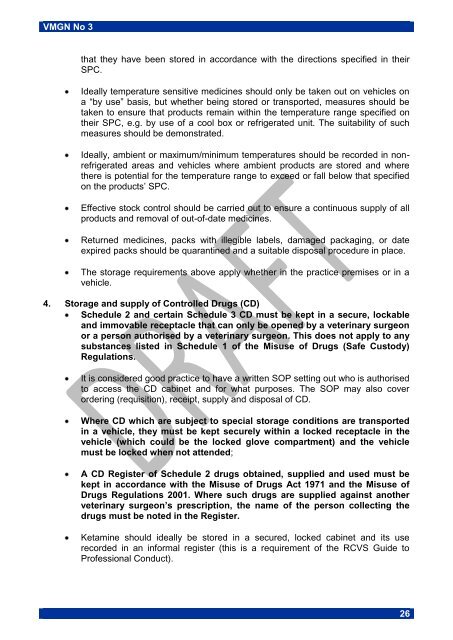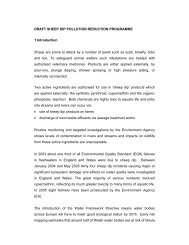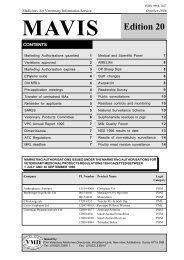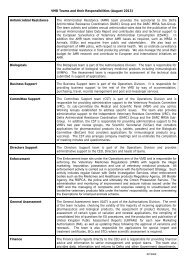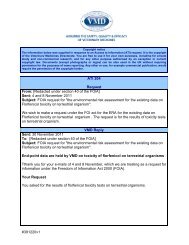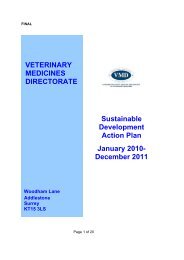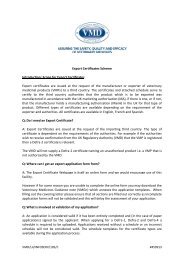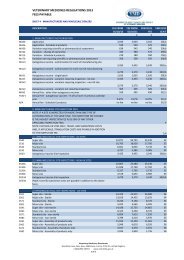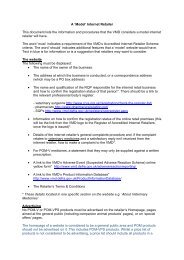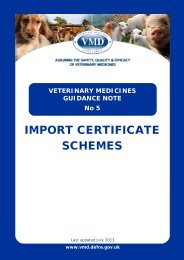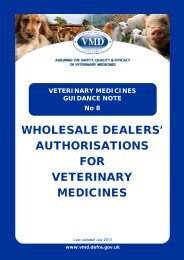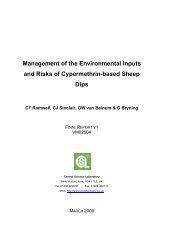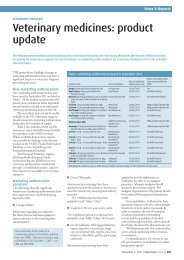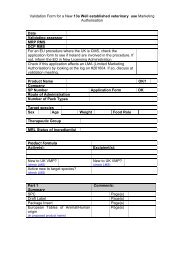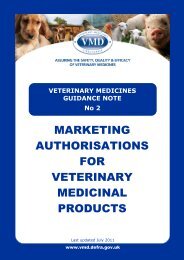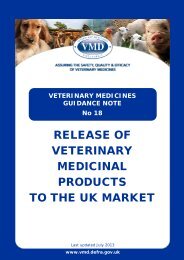VETERINARY MEDICINES GUIDANCE NOTE No 3
VETERINARY MEDICINES GUIDANCE NOTE No 3
VETERINARY MEDICINES GUIDANCE NOTE No 3
You also want an ePaper? Increase the reach of your titles
YUMPU automatically turns print PDFs into web optimized ePapers that Google loves.
VMGN <strong>No</strong> 3<br />
that they have been stored in accordance with the directions specified in their<br />
SPC.<br />
Ideally temperature sensitive medicines should only be taken out on vehicles on<br />
a “by use” basis, but whether being stored or transported, measures should be<br />
taken to ensure that products remain within the temperature range specified on<br />
their SPC, e.g. by use of a cool box or refrigerated unit. The suitability of such<br />
measures should be demonstrated.<br />
Ideally, ambient or maximum/minimum temperatures should be recorded in nonrefrigerated<br />
areas and vehicles where ambient products are stored and where<br />
there is potential for the temperature range to exceed or fall below that specified<br />
on the products‟ SPC.<br />
Effective stock control should be carried out to ensure a continuous supply of all<br />
products and removal of out-of-date medicines.<br />
Returned medicines, packs with illegible labels, damaged packaging, or date<br />
expired packs should be quarantined and a suitable disposal procedure in place.<br />
The storage requirements above apply whether in the practice premises or in a<br />
vehicle.<br />
4. Storage and supply of Controlled Drugs (CD)<br />
Schedule 2 and certain Schedule 3 CD must be kept in a secure, lockable<br />
and immovable receptacle that can only be opened by a veterinary surgeon<br />
or a person authorised by a veterinary surgeon. This does not apply to any<br />
substances listed in Schedule 1 of the Misuse of Drugs (Safe Custody)<br />
Regulations.<br />
It is considered good practice to have a written SOP setting out who is authorised<br />
to access the CD cabinet and for what purposes. The SOP may also cover<br />
ordering (requisition), receipt, supply and disposal of CD.<br />
Where CD which are subject to special storage conditions are transported<br />
in a vehicle, they must be kept securely within a locked receptacle in the<br />
vehicle (which could be the locked glove compartment) and the vehicle<br />
must be locked when not attended;<br />
A CD Register of Schedule 2 drugs obtained, supplied and used must be<br />
kept in accordance with the Misuse of Drugs Act 1971 and the Misuse of<br />
Drugs Regulations 2001. Where such drugs are supplied against another<br />
veterinary surgeon‟s prescription, the name of the person collecting the<br />
drugs must be noted in the Register.<br />
Ketamine should ideally be stored in a secured, locked cabinet and its use<br />
recorded in an informal register (this is a requirement of the RCVS Guide to<br />
Professional Conduct).<br />
26


